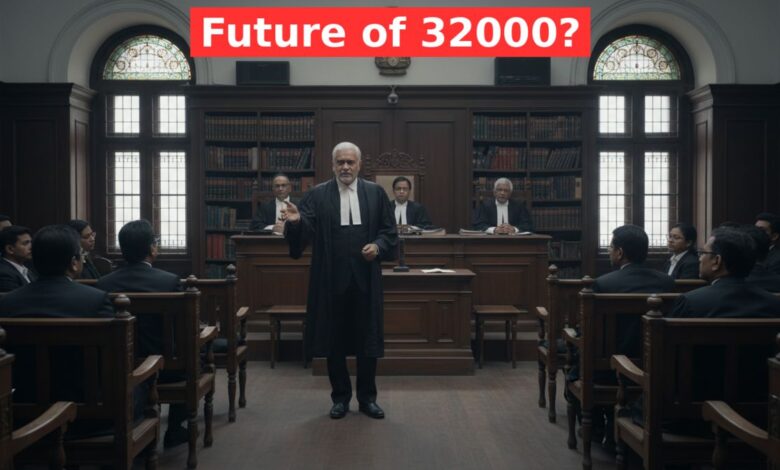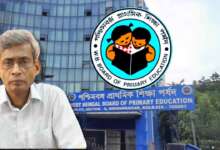32000 Teacher Case: AG’s Strong Arguments on Relaxation & SBRC, Judge Stern on Corruption! When is the Verdict?

Primary 32000 Case: The 19th-day hearing of the Primary 32000 teacher recruitment case (Primary 32000 Case) has concluded at the Calcutta High Court, a development set to determine the future of thousands of teachers in the state. During this session, Advocate General (AG) Kishore Datta presented strong arguments on behalf of the board, particularly concerning the TET 2014 relaxation and the role of a private agency in the recruitment process. On the other hand, the judge made his stern stance clear by raising issues of corruption and financial transactions, adding a new dimension to the case.
Board’s Argument on Relaxation
A significant part of the hearing was dedicated to the MHRD relaxation granted to untrained candidates who cleared the 2014 TET. Advocate General Kishore Datta informed the court that this relaxation was provided in full compliance with the rules. He mentioned that the service rules stipulated the completion of training within a specific period (2 years) after joining the job.
Although the judge questioned the timeline, specifically the gap between April 2015 and March 2016, the AG explained that the step was taken based on MHRD guidelines and subsequent Supreme Court rulings. He further added that the directive to complete the D.El.Ed training by March 2019, as per the 2017 amendment, was also adhered to.
The Controversial Role of SBRC
One of the most contentious issues in this case is the role of the private agency, S. Basu Roy & Company (SBRC). It was alleged that the board had unlawfully outsourced crucial responsibilities of the recruitment process to this firm. In response, the Advocate General clarified that SBRC was not given the complete responsibility of recruitment. Their task did not include assessment or awarding marks to candidates.
He argued that SBRC’s role was primarily administrative and technical, such as processing a large volume of online applications, preparing district-wise lists, and creating attendance sheets for interviews. The AG claimed that the board had engaged the agency for these auxiliary tasks in accordance with the rules.
Judge’s Stern Observations and Other Petitions
While the Advocate General argued in favour of the board, the judge showed a very strict attitude towards corruption. During the hearing, he brought up the context of “money transfer” and cited an example from a case in Tripura.
The day began with discussions on several applications (CANs). Advocate Sudipta Dasgupta attempted to submit a list related to ‘rank jumping’. However, the judge clearly stated that he would only entertain applications from those who had filed an Independent Writ Petition in the single bench. This included an application from a teacher suffering from Thalassemia, who appealed to the court to save his service.
Next Hearing and Awaiting the Verdict
The Advocate General’s arguments for the day have concluded. The judge has announced that the next hearings for this case will be held on November 11th and 12th. It has been stated that after all parties conclude their arguments by November 12th, the judgment will be reserved. Consequently, the entire state is now anxiously awaiting the final verdict, which will decide the fate of 32,000 teachers after this prolonged legal battle.

